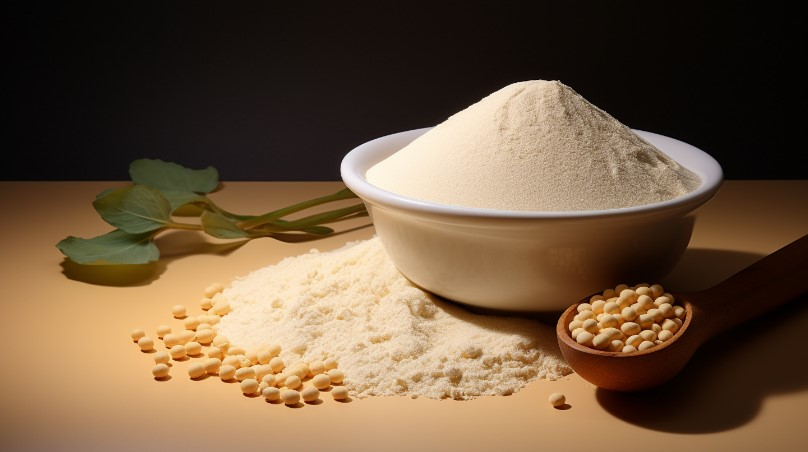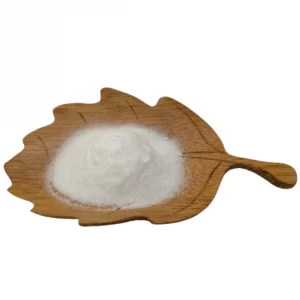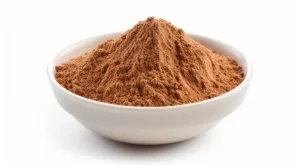Эффективность и побочные эффекты лецитина

The origin of lecithin is a complex mixture of phospholipids (common in animal and plant tissues) that was first isolated from egg yolks by French chemists in 1846.
The main components include: choline, fatty acids, glycerol, glycolipids, phosphoric acid, triglycerides and phospholipids, among which phospholipids are the key structural and functional components of all plant and animal cell membranes, including phospholipylacylserine, phospholipylcholine, phospholipylinositol and so on.
Because lecithin has an emulsifying effect (can bind water and fat), it is widely used in food processing, such as ice cream, infant formula, bread, margarine chocolate and other foods, but also as an antioxidant and flavor protectant
Soybeans are by far the most commonly used raw material to make lecithin supplements, with milk, canola, sunflower, and corn sometimes also used.
Lecithin has been used for more than a century, mostly from soybeans, but some are made from milk, canola, sunflower and corn. You can find lecithin rich foods like egg yolks, sesame seeds, yams, peanuts, nuts and so on. During the critical pregnancy and lactation period, the demand for lecithin nutrition increases, and food supplementation alone may not be able to meet the demand.
What are the empirical benefits of lecithin?
1. Lecithin is beneficial for non-alcoholic fatty liver disease
Non-alcoholic fatty liver disease is one of the most common chronic liver diseases, characterized by the accumulation of fat in the liver exceeding 5% of the weight of the liver, and more than 30% of the population worldwide has NAFLD.
There is currently no consensus on the pharmacological treatment of NAFLD/NASH. Thiazolidinediones, metformin, lipid-lowering agents and antioxidants… Drugs that directly reduce oxidative stress and lipid accumulation can improve clinical manifestations of disease.
A prospective pilot study (3 months) in 30 patients with nonalcoholic fatty liver disease indicated that oral phosphatidylcholine capsules (300 mg, 2 capsules each), 3 times a day decreased alanine aminotransferase (ALT) (59.6%) and aspartate aminotransferase (AST) (75.4%), and increased antioxidant defense-related glutathione peroxidase (GPX) and superoxide dismutase (SOD).
Oral lecithin (phosphatidylcholine) may provide positive help for non-alcoholic fatty liver disease, but due to the small sample size, more rigorously designed large studies are needed for further verification
2. Lecithin is beneficial for ulcerative colitis
Ulcerative colitis is a chronic inflammation of the colon’s mucous membrane that, depending on the individual, can extend from the rectum to the cecum. The cause of the disease is unknown and is characterized by recurrent, uncontrolled inflammation of the colon, with symptoms including frequent diarrhea, rapid bowel movements, rectal bleeding, and fatigue.
The prevalence in Western countries ranges from 0.02% to 0.23%, and the cost of treating patients has surpassed that of asthma, hypertension and chronic obstructive pulmonary disease.
Some studies have found that phosphatidylcholine in lecithin components is an important protective component of colon mucus, and too low levels can easily reduce the hydrophobic barrier function of intestinal mucus, allowing colon bacteria to cross the intestinal mucus barrier, and the ensuing immune response can lead to inflammation and ulcers.
A Meta-analysis of the literature (three randomized controlled trials involving 160 patients with ulcerative colitis) indicated that lecithin sustained release formulation (containing 30% phosphatidylcholine) resulted in improved response rates, clinical and endoscopic outcomes, and histological activity and quality of life.
For ulcerative colitis, oral lecithin sustained release formulation may provide positive help, but due to the small sample size, more studies are needed to further confirm
Lecithin is good for liver failure
The progression of liver disease can lead to a variety of physical disorders that may lead to liver failure and require admission to intensive care. The underlying pathology may be acute, slow plus acute, or chronic.
Liver failure can present with a variety of clinical signs and symptoms that require prompt attention. Liver failure can affect the synthetic and metabolic activity of all organ systems, and supportive care and specific treatments should be developed to improve outcomes and reduce recovery time.
A preliminary randomized controlled trial in patients with fulminant and subacute liver failure indicated that patients treated with lecithin (350 mg 3 times daily for 6 to 8 weeks) had a faster recovery of encephalopathy and a lower mortality rate than a control group not treated with polyunsaturated phosphatidylcholine (lecithin).
Lecithin therapy may provide positive help for some patients with liver failure, but due to the small sample size, more studies are needed to further verify
Lecithin is beneficial for dementia and cognitive dysfunction
Dementia is an umbrella term used to describe a clinical syndrome of progressive cognitive decline, but its subtypes are classified according to the cause of dementia, such as: Alzheimer’s disease, vascular dementia, Lewy body dementia, and frontotemporal dementia.
The clinical manifestations of dementia vary from person to person, and the cognitive deficits it causes can be memory loss, communication and language difficulties, agnosia (inability to recognize objects), apraxia (inability to perform previously learned tasks), and impaired executive function (reasoning, judgment, and planning).
A review of the literature (including 12 randomized trials related to Alzheimer’s disease, Parkinson’s disease, and subjective memory problems) indicated that lecithin supplementation did not have any clear clinical benefit compared to placebo in Alzheimer’s disease or Parkinson’s disease, but may be helpful for subjective memory problems.
So far, lecithin supplementation has not significantly helped dementia and cognitive function, which needs to be further verified in more large studies
Lecithin is beneficial for the development of mental illness
Schizophrenia is considered a neurodevelopmental brain disorder caused by early genetic and environmental risk factors, including: maternal malnutrition, depression, anxiety, infection, and smoking, and is characterized by two classes of symptoms: positive and negative.
Positive symptoms include hallucinations, delusions, disorganized thinking and speech patterns, and abnormal motor behavior, while negative symptoms include emotional dullness or flatness, lack of motivation, lack of or diminished speech patterns, diminished interest in social interactions, and anhedonia.
A double-blind placebo-controlled trial of 49 children reported that offspring whose mothers were supplemented with lecithin during pregnancy had fewer attention problems and less social withdrawal on behavioral assessments.
The extent of the improvement is comparable to similar deficits seen in people with schizophrenia at this age.
The underlying mechanism is related to the increased activation of α7-nicotinic acetylcholine receptor by lecithin, which in turn alters the development of behavioral problems in young children
Oral lecithin during pregnancy may reduce the risk of psychiatric behavioral problems in offspring, but the results need to be confirmed in more large studies
Lecithin is good for hypercholesterolemia
Cholesterol is a biomolecule that is essential for the structure and function of mammalian cell membranes and for the synthesis of hormones and vitamins.
Hypercholesterolemia is a state of abnormal blood lipid levels, the most common secondary, accounting for about 80%, and the rest of the causes are primary dyslipidemia caused by abnormal lipoprotein metabolism genes
Although the relationship between increased cholesterol and cardiovascular disease has become the focus, risk factors such as smoking, high blood pressure and diabetes may also lead to atherosclerosis.
A two-month, double-blind, controlled study in 30 patients with hypercholesterolemia showed that oral lecithin capsules (500 mg daily) significantly reduced total cholesterol and low-density lipoprotein cholesterol (LDL) concentrations compared to placebo.
The underlying mechanism may be related to reduced intestinal cholesterol absorption or increased bile acid secretion.
Oral lecithin may help improve hypercholesterolemia
Seven. Lecithin relieves menopausal symptoms in women
The transition to menopause, or perimenopause, is associated with profound changes in reproduction and hormones. The typical symptom is hot flashes, most women have this symptom, about one-third of women have moderate to severe problems.
Other symptoms, such as joint pain and stiffness, fatigue, difficulty concentrating, poor sleep, irritability and depression, are quite common among middle-aged women.
A randomized, double-blind, placebo-controlled, 8-week study of 86 women aged 40 to 60 years showed that supplementation with high doses of soy lecithin improved vitality scores (as measured by the POMS Brief emotional State Scale), diastolic blood pressure, and cardio-malleolar vascular index.
Lecithin may be helpful in improving some menopausal symptoms (such as fatigue) in women
Lecithin is beneficial for bipolar disorder
Bipolar disorder is a chronic, relapsing disorder characterized by recurrent episodes of mania or depression, usually occurring in adolescence or early adulthood.
Patients experience episodes of depression, characterized by low mood and related symptoms (such as loss of pleasure and decreased energy), while episodes of mania, characterized by feelings of excitement or irritability, or both, associated with increased energy and decreased need for sleep, or hypomania.
A case-control study in a boy with mild to moderate mania and the DGKH gene showed that the use of lecithin supplements in addition to medication alleviated hypomania and insomnia symptoms.
Lecithin supplementation may be beneficial in patients with DGKH susceptibility genes for bipolar disorder, but more trials are needed to confirm its clinical benefit
Lecithin improves breast duct obstruction
While breastfeeding brings amazing benefits, it also comes with some challenges, namely milk duct blockage (or obstruction) and mastitis.
Breast duct obstruction is a common problem in breastfeeding, and occurs when milk is not fully drained from the breast, or when there is too much pressure inside the breast. It may feel like there is a soft lump in the breast, which can be painful and uncomfortable for a new mother.
Lecithin is often mentioned in the treatment of partial breast duct obstruction and is thought to prevent breast duct blockage by reducing the viscosity of the milk (by increasing the proportion of polyunsaturated fatty acids in the milk).
The recommended dose is about 3,600-4,800 mg of lecithin per day, or 1 capsule at a time.
To date, lecithin has been used to improve breast duct obstruction, but no scientific studies have evaluated whether the treatment is effective.
Does lecithin have side effects
Lecithin is very safe for most people, but possible side effects that have been reported include diarrhea, excessive sweating, vomiting, nausea, abdominal pain, or feelings of fullness.
Safety precautions (7 points taboo)
1. May induce allergic reactions (Lecithin is usually extracted from soy, egg yolks, sunflower seeds, or rapeseed, and may therefore contain protein residues from the original extract. This means that people who are allergic to soy, rapeseed, eggs or sunflower seeds may also have an allergic reaction to lecithin, with symptoms including: rash, difficulty breathing, swelling of the face, lips, tongue or throat.)
2. Metabolite of lecithin: Choline is converted to TMAO in the gut, and higher TMAO levels are associated with an increased risk of major cardiovascular adverse events.
3. Lecithin is involved in adipogenesis and hepatic lipid accumulation, and excess may be associated with obesity and hepatic steatosis.
4. Do not combine with anticholinergic drugs, which may affect the efficacy of the drug, the relevant drug names are: (atropine), (scopolamine), (antihistamine), (antidepressant)
5. Do not use with acetylcholinesterase inhibitors, may increase the side effects of drugs, related drug names are: (Doneguazil), (tacrine), (capalatine), (galantamine)
6. Do not treat glaucoma and sjogren’s drugs: pilocarpine combined use, may increase the chance of side effects
7. Lecithin may increase platelet adhesion and thus reduce the effectiveness of blood thinners such as aspirin. Be aware if taking related anticoagulant drugs.
() ()


